The next generation speaks
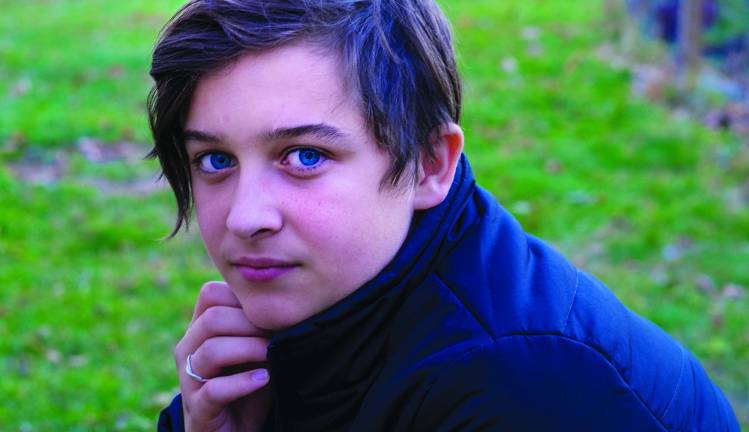
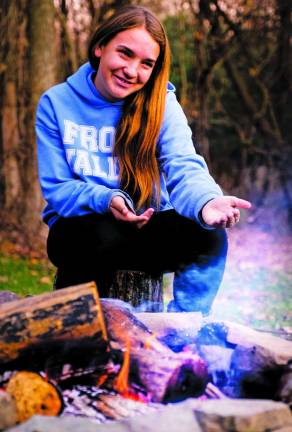
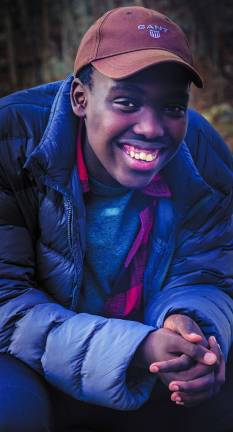
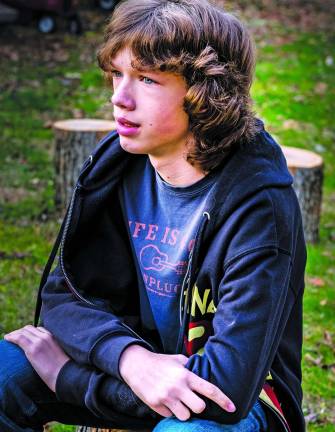
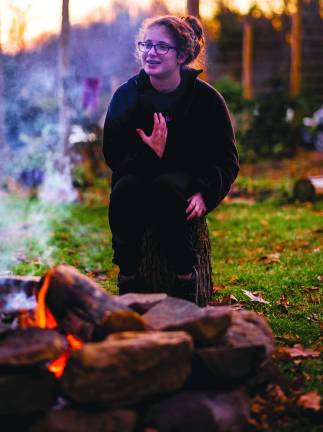
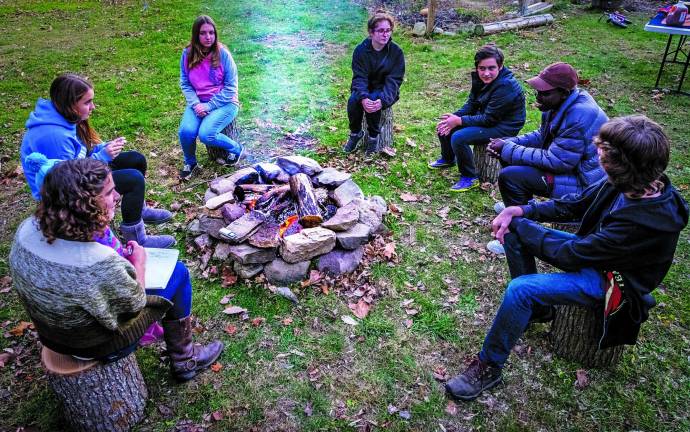
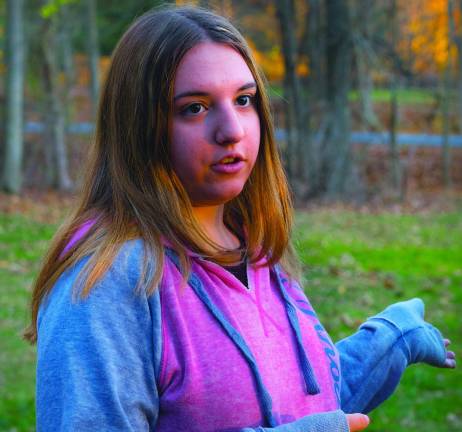
This golden age we’re living in comes at a cost, but it’s a graduated cost: the youngest among us will pay the most. We felt it was time to turn the mic over to those who have the most at stake. What do they see? What do they have to say about it? Dirt put out a call to local schools for young environmentalists. On a chilly November afternoon, just before the first unexpected snow, we sat down with six teens around a campfire to listen.
( What got you concerned about the environment? )
Hannah: We’ve been redeeming bottles, me and my mom, for quite some time now. We started getting out, seeing huge amounts of plastic bottles. We were getting, like, half-full bottles of water. We were finding huge garbage bins full of just plastic bottles that people were throwing away, and they were all over the floor and everything.
Malcolm: I’ve wanted to be a marine biologist since I was four. Everything I do focuses more around the ocean, and when I went to places near there I always noticed a lot of pollution. I guess it was pretty early on in the process of becoming serious about it — 7 or 8 years old — I realized that this is actually a really big problem. It wasn’t just from those assemblies , the cheesy little assemblies where they come to school and they’re like, don’t litter.
Maxwell: [Back in Johannesburg] my entire football team – soccer team – there were these bottles we all brought. After almost every practice or every game, there’d be this whole bunch on the grass. So we would leave it. I didn’t know how bad it really was.
Connor: I go to a Montessori school and we’re outside a lot. The theme we’re doing this year is ‘We are what we eat,’ we’re talking about sustainability with food, GMOs. Going to my school, I got more interested in the environment. We’ve worked on the garden my school has. We’re trying to improve the health of the soil that is in it. We have goats and chickens. On Mondays, Wednesdays and Fridays I go and collect the chicken eggs.
( If you were president, what’s the first thing you’d do? )
Rachel: One thing that has always bothered me is the use of plastic bags. My favorite animals are sea turtles. When I was in third grade, that’s when I realized that plastic bags look like the sea turtle’s main source of food: the jellyfish. Since then I just have been more aware and I cannot stand littering or any pollution. If I see anyone throwing any trash on the ground, I always pick it up because I think of all the helpless wildlife who can’t do anything about it if we’re destroying our planet by littering.
So I think that restrictions or a ban on plastic bags would be good. Last year I did an essay on this. We had to do an essay on something we really cared about. I think in stores they should not be giving out the crazy amounts of plastic shopping bags that they do. There are so many studies saying that that is the number one thing polluting our oceans. It just disgusts me that we aren’t doing something better. There are so many other alternatives and I think that we should actually start using them.
Connor: A big problem is hunting in my opinion. Not all people follow all the rules and regulations. They can kill more [than they’re supposed to], which sometimes puts some creatures in danger. That throws off the balance of the food chain.
I see a good amount of bears around my house. I like bears. I don’t want to see them gone one day. I might not be able to stop hunting but I would try to make more rules about it, make people more aware of what is happening. I would try my best to make [hunters] aware of what’s happening around them, and that they might not have that animal to hunt anymore.
Amanda: I would probably increase the fines for littering. We see people litter all the time. We’ve been driving on the side of the road and seeing leftover fast food and just garbage littered on the side of the road. Or we’ll be walking behind someone going into the supermarket and they’ll just drop the cigarette on the floor. I’d increase the fines, so that people would be afraid to litter.
One thing we would do at soccer, every time someone accidentally left their bottle on the field, the coach would count them up at the end of the day and for the next practice he would make us run a suicide for every bottle that there was.
( What’s your friends’ attitude toward the environment? )
Rachel: I don’t think that our peers are aware of how seriously the world needs our help. Everyone knows in theory that we’re not going in a great direction. We all learn about global warming and pollution and how it’s bad, but after class, I don’t think anyone really gives it another thought, because they don’t think or know that they can actually do stuff to help.
Malcolm: Even today, there was an assembly during our Community Meeting, where they were talking about recycling and things like that, and there were people sleeping and talking to their friends, and just not paying attention – being like, when is this going to be over? You can’t just talk to someone. There has to be some sort of activity or an active thing, where they can see it and know that it’s real. That’s how you get people to care. You have to show them where it is, near them.
Hannah: I think it’s better to hear about important topics from your peers than someone older than you. They can relate to you more, and it makes it easier to explain.
( What do you think the world will look like in 2050? )
Amanda: By the way we’re going now it doesn’t look that good for 2050. People don’t really notice what’s happening around them until it actually affects them, and not just other places in the world. I know some organizations are doing things about it, but one organization is not going to help the whole world. We only have one world to live on, and we have to do something about it, or else it’s not going to go well. People are going to have to make new solutions to get around the problems that we created. Either other types of farming, or people are looking to expand to other planets, like for food or natural resources that we’re running out of because we’re using so much of them.
Connor: It might be too late in 2050, to fix anything. It might be harder to breathe. It might be harder to get power. Like in the movie The Lorax, people are probably going to have to buy fresh air. I think they did that in China actually. I think they had to bottle some fresh air. [True. CNN recently reported on a Brit bottling and selling air to the Chinese for $115 per bottle.]
Malcolm: A lot of the pollution and the garbage and the waste starts with the technological revolution, which we’re in right now. You look around, and everything’s made of plastic. Everything is not natural, and it’s not supposed to be here. We have way more technology than we need. We have enough for communication. We have enough for transportation. We have enough for food production in large quantities that are easily accessible and cheap to make. And I don’t see what else we need.
It’s just gotten to the point where it’s like, it’s not for the need, it’s for the money. You see it in shows like Shark Tank. People are just coming up with inventions so they can make money.
People do better when they have more stress in their life. And for me, it’s not really that stressful to reach over and, like, I don’t know, pick up a paper towel instead of waving your hand under it and having it come out. There’s so much stuff we don’t need. And really it’s not fair to kids our age that we have to wait for adults to be done with their pointless technology before we can actually save the world.
It’s hard to be optimistic because even now, we’re so unsure. But it’s even harder for me to be pessimistic. So I’m really going to try and make a difference.
I think that it’s so important that adults don’t put themselves on a pedestal, and they let themselves be affected by the younger people that they see themselves above, and let themselves care.